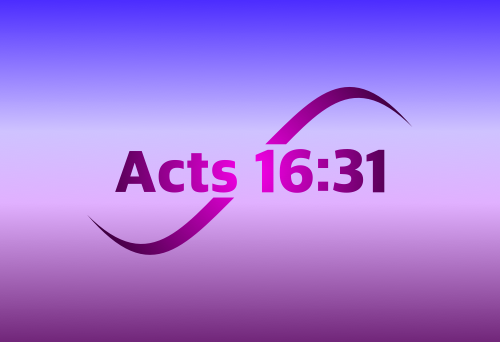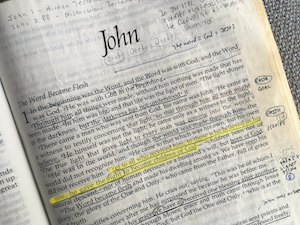
The next conversions in the book of Acts are the conversions of Cornelius, Lydia and the Philippian Jailer. All three of these were discussed in previous podcasts. Let’s quickly mention them and then move on to the next full blown narrative which deserves full discussion, the conversion of Apollos.
A Quick Review
As a reminder, we are in the middle of the last section of our study about baptism and unlike the anti-baptism arguments which rarely use scriptures that mention baptism, we are focused almost solely on scriptures which use that word. It is difficult to craft a good argument if we avoid the very scriptures which mention the word we are trying to explain.
Our first quick review is the conversion of Cornelius, a Roman Centurion. We studied this conversion story, in great detail, back in Podcast 031 – Pagans with Spirit. Please go back to that podcast or blog post where the issue of baptism is dealt with thoroughly.
The next conversion in the book of Acts is the conversion of Lydia in Acts 16. There is not much to say about this conversion other than to note that baptism is involved but infants are not. After this, in the same chapter, we read about the conversion of the Philippian Jailer. This is another major conversion story and we dealt with this in Podcast 017 – Anti Baptism Scriptures Part 3. Please review the details of that conversion in that blog post or podcast.
The Conversion of Apollos
Now, we come to the conversion of Apollos. There are two very distinct and separate parts to this story. Let’s dive in.
Acts 18:24-28
Meanwhile a Jew named Apollos, a native of Alexandria, came to Ephesus. He was a learned man, with a thorough knowledge of the Scriptures. He had been instructed in the way of the Lord, and he spoke with great fervor and taught about Jesus accurately, though he knew only the baptism of John. He began to speak boldly in the synagogue. When Priscilla and Aquila heard him, they invited him to their home and explained to him the way of God more adequately.
When Apollos wanted to go to Achaia, the brothers encouraged him and wrote to the disciples there to welcome him. On arriving, he was a great help to those who by grace had believed. For he vigorously refuted the Jews in public debate, proving from the Scriptures that Jesus was the Christ.
Analysis of the story.
This is quite a story. Apollos is probably a Grecian Jew; the name gives that away. He was very intelligent and had a thorough knowledge of the Scriptures. These of course, would have been the Hebrew Scriptures or the Old Testament. At some point in time, Apollos learned about Jesus. He had been given enough information about Christ to come to a belief that Jesus was indeed the Christ. Apparently, this fired him up enough to begin speaking to people about his discovery. But how do you think that happened? What might have happened to bring Apollos to a point where he became a preacher of Christ?
I suspect the case of Apollos is not an unusual case. John the Baptist preached for quite a while in Judea and the surrounding area. We know he had a pretty good following. All of the people who followed John believed the Christ was eminent and were baptized by John in preparation for that event. Many of these folks would have been around when John declared Jesus as the Christ, “the one who’s sandals he was not worthy to untie.” Some of those same people left John and began following Jesus.
But, not everyone who was a part of John’s ministry was able to stick around and see the complete fulfillment as Christ suffered, died and was resurrected. Apollos may have been one of these transients who did not know the rest of the story. In essence, these people got all fired up and went off half cocked! John proclaimed the Messiah had arrived and that is exactly what they continued doing after they left Judea but before the conclusion of Jesus ministry..
Eventually they would learn the rest of the story. This is the case with Apollos. He is a disciple of John and is about to see the bigger picture.
Regardless of how Apollos came to be in the position he is in, it does leave him with an interesting problem. Apollos is not a Christian! Apollos has not yet obeyed the Gospel. He knew “only” the baptism of John. He did not know about baptism into Christ.
Click here to read the rest of this post.






